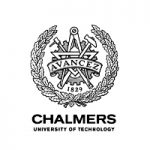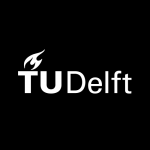项目介绍
Join our research team to explore the impact of wind development. Who has been impacted? Could it have been avoided? We work in an interdisciplinary way using data analysis and modeling to analyze policy relevant aspects of the future energy system. You will have access to state-of-the-art facilities and resources, as well as a supportive and collaborative research environment. You will have the opportunity to work with experts in the field and to collaborate with other researchers both within and outside of the division.
Information about the division and the department
The division of Physical Resource Theory is one of five divisions within the department of Space, Earth and Environment. The Division of Physical Resource Theory offers an interdisciplinary research environment that relies on a range of different scientific methods, from energy system modelling and agent-based modelling, to remote sensing, econometrics and surveys. Our aim is to advance challenge-driven scientific excellence by crossing traditional disciplinary boundaries and increasing the level of cross-collaboration in environmental research and with society at large. The division has around 50 staff members, faculty, and PhD-students with diverse expertise, including engineers and natural and social scientists. We also offer courses in areas related to our research.
Information about the project
You will analyze local impacts of wind power plants. Currently there is an ongoing public debate on wind power expansion where some people are impacted negatively by the expansion. One group that is negatively impacted are those that live close to newly built turbines. The purpose of this research project is to investigate:
(1) How common is it that wind turbines have been built close to residential houses?
And
(2) Which socio-demographic groups has been mostly impacted by wind power expansion?
You will work with public and commercial GIS data sets of wind turbine locations as well as population characteristics and will have to develop data analysis methods as well as use statistical methods or regression models for investigating these questions. The focus of the project is on the Swedish context where an international comparison can be an extension of the project.
There are several possible subsequent research questions related to the project, and you are welcome to design additional research questions as well.
Major responsibilities
- Developing your own research methodology.
- Presenting research findings and writing academic publications.
- Staying updated on developments in your field, and incorporating new knowledge into the project as appropriate.
- Completing other tasks as assigned by the project lead to ensure the success of the project.
- Up to 20% teaching.
Qualifications
To qualify for this position you must have:
- a PhD in energy systems, economics, mathematics, data science or econometrics, awarded no more than three years prior to the application deadline. Exceptions from the 3-year limit can be made for longer periods resulting from parental leave, sick leave or military service*;
- a strong background in modeling or quantitative analysis and good understanding of the social aspects of energy transitions;
- a strong academic record;
- sound verbal and written communication skills in English.
* The date shown in your doctoral degree certificate is the date we use, as this is the date you have met all requirements for the doctoral degree.
Contract terms
This postdoc position is a full-time temporary employment for two years. The position can be extended to four years.
We offerChalmers offers a cultivating and inspiring working environment in the coastal city of Gothenburg.
Read more about working at Chalmers and our benefits for employees.
Chalmers aims to actively improve our gender balance. We work broadly with equality projects, for example the GENIE Initiative on gender equality for excellence. Equality and diversity are substantial foundations in all activities at Chalmers.
Application procedure
The application should be marked with 20240567 and written in English. The application should be sent electronically and be attached as PDF-files, as below. Maximum size for each file is 40 MB. Please note that the system does not support Zip files.
CV: (Please name the document as: CV, Surname, Ref. number) including:
• CV, include complete list of publications
• Previous teaching and pedagogical experiences
• The names of 2-3 references, including contact information
Other documents:
• A project description that outlines how to approach the research topic (2-3 pages)• Attested copies of completed education, grades and other certificates.
Use the button at the foot of the page to reach the application form.
Please note: The applicant is responsible for ensuring that the application is complete. Incomplete applications and applications sent by email will not be considered.
Application deadline: 2024-11-24
For questions, please contact:
Fredrik Hedenus, Professor
Email: hedenus@chalmers.se
Phone: +46317723453
*** Chalmers declines to consider all offers of further announcement publishing or other types of support for the recruiting process in connection with this position. ***
Chalmers University of Technology in Gothenburg conducts research and education in technology and natural sciences at a high international level. The university has 3100 employees and 10,000 students, and offers education in engineering, science, shipping and architecture. With scientific excellence as a basis, Chalmers promotes knowledge and technical solutions for a sustainable world. Through global commitment and entrepreneurship, we foster an innovative spirit, in close collaboration with wider society.
Chalmers was founded in 1829 and has the same motto today as it did then: Avancez – forward.
URL to this page
https://www.chalmers.se/en/about-chalmers/work-with-us/vacancies/?rmpage=job&rmjob=13311&rmlang=UK
联系方式
电话: +46 (0)31-772 10 00相关项目推荐
KD博士实时收录全球顶尖院校的博士项目,总有一个项目等着你!





